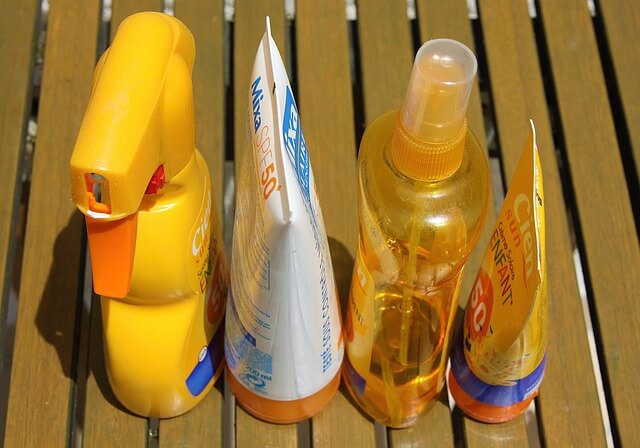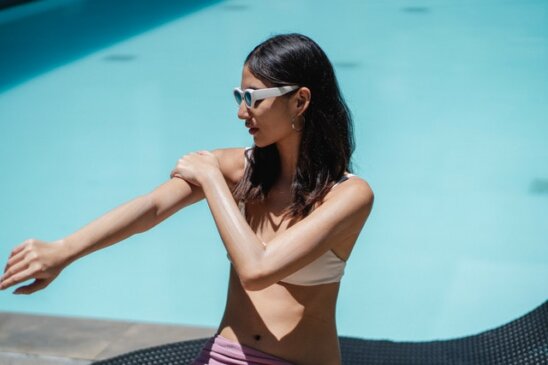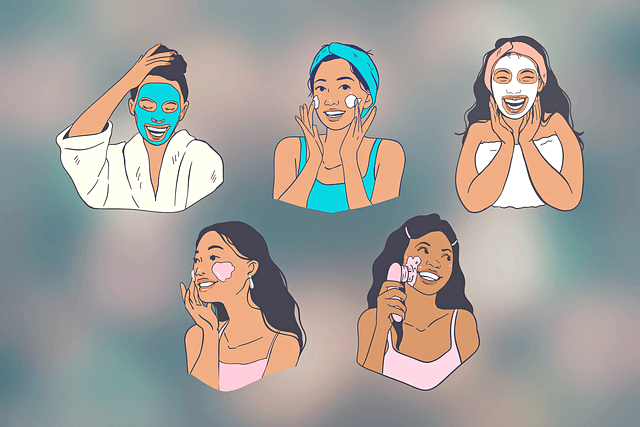When you hop down to the nearest supermarket to buy a bottle of sunscreen, have you ever wondered what is the best sunscreen for your skin type and what the SPF number means? Does this magical bottle of sunscreen really help prevent skin tanning and above all, are expensive sunscreens from international brands the best over their cheaper local peers?
These are just some of the common questions that come to your mind while shopping for sunscreen. Today, we will cover these general FAQs about sunscreens, does sunscreen prevent tanning and find out much more about them in this post.
Top dermatologists speak
When it comes to the subject of sunscreens and tanning, top dermatologists in the country recommend wearing a good sunscreen daily to prevent skin tanning to some degree. Wearing a good quality sunscreen prevents the rays of the sun from causing skin cancer and photoaging. However, despite wearing a sunscreen, if you are out in the sun for a long time, there are possibilities of you getting a slight tan. Dermatologists caution that no amount of “deliberate tanning” is considered safe for anyone and stepping out in the sun with no sunscreen is definitely not a good idea at all!
How do sunscreens work?
Sunscreens can either be chemical or physical based. They work in the following ways-
- Chemical- based sunscreens– They absorb the UV rays of the sun and alters them effectively before they damage your skin. Octisalate and oxybenzone are the main ingredients present in these products.
- Physical- based sunscreens– They reflect and scatter the harmful UV rays of the sun from your skin. They generally contain titanium oxide and zinc. The FDA recognizes them as effective and safe for everyone.
Chemical sunscreens versus physical sunscreens
Now, when it comes to choosing between chemical and physical sunscreen products, look for one that has a broad spectrum or protects your skin again from UVA and UVB rays known as ultraviolent and ultraviolet B rays respectively.
- UVB rays consist of shorter wavelengths of the sun rays that cause age spots, wrinkles and burns.
- UVA rays are longer and results in skin cancer and burns.
If you wear sunscreen regularly during outdoor activities, it protects your skin from daily sun exposure. If your skin is left unprotected, tiny amounts of sun exposure adds up with time. Therefore, make sure you cover your neck, face and chest with a good sunscreen daily.
However, when you swim or indulge in any other water-based activities, make sure you wear a sunscreen that is water-resistant. This ensures the product isn’t washed off from your skin to make it exposed to the harmful UV rays of the sun.
Note, you must remember that your sunscreen is just a “filter”. It cannot prevent sun tanning 100%. This means you will tan at some degree if you are out under the hot sun regularly.
What does SPF mean?
If you carefully examine every bottle of sunscreen, you will find it contains the term “SPF” with a number like 15, 30, 50, etc.
Before we go in to know what the ideal SPF is for your skin, you first must understand what it means?
SPF refers to the sun protection factor. The perfect SPF in your sunscreen depends upon your sun exposure. Daily sunscreens contain a lower number and can be used when you are inside your home however, if you are under the direct exposure to the sun’s rays you need a higher SPF.
What do the SPF numbers mean?

The SPF numbers refers to the time or the duration it will take for the skin to burn without wearing any sunscreen along with providing you with a specific degree of protection.
For example, a sunscreen with an SPF number of 30 means it will take around 30 times longer for the skin to burn if it were left unprotected without a sunscreen. However, the application of the sunscreen should be correct and of the right amount.
Apply sunscreen at least 30 minutes before you step out. The product must be applied liberally and should soak into your skin. Good quality sunscreens will penetrate into your skin naturally to create a barrier against the sun. Re-apply as per the instructions given in the product you buy.
The SPF also denotes that a specific percentage of skin aging UVB rays of the sun are still permitted to penetrate your skin.
As per the Skin Cancer Foundation, about three percent of UVB rays enter the skin with SPF 30 and two percent with SPF 50. This is the answer to does sunscreen prevent tanning and why you still get a tan when you wear a sunscreen.
How does your skin respond to sun exposure?
When your skin is exposed to the sun, it becomes inflamed. Due to the result of the sunburn, your skin adapts to it by tanning. The more prolonged your sun exposure is, the more severe the sunburns are.
Skin tanning also results when melanin is released into the affected area. The adverse effects of sun exposure are not always visible. The long-term effects of UV exposure like photoaging and cancer often go unseen and undetected. Dermatologists recommend you wear a broader spectrum sunscreen with the right SPF to minimize the extent of damage to your skin if you regularly need to step out under the direct sun.
In addition to the above, The Skin Cancer Foundation in the USA says that if you wear a sunscreen with a minimum of SPF of 15, you will reduce your risks of melanoma skin cancers up to 50 percent and non-melanomas by 40 percent.
When should you consult your dermatologist?
Consult your dermatologist about the ideal SPF you should use for your skin. They will recommend the right SPF for your location and specific times of the year. If you reside at a higher altitude, you are at a greater risk to UV sun exposure as well as with locations close to the Equator.
Therefore, in order to get the best sunscreen for your skin, consult your dermatologist for a skin-check today. Make sure you apply it in the correct way on your exposed body parts as directed to keep sunburn and severe tanning at bay!





